Stop issuing paper health insurance cards from June 1, 2025.
In June 2025, many new policies will take effect, such as: amendments and supplements to regulations on invoices and documents; new regulations on regimes and policies for senior experts; many changes in inspection and handling of administrative violations; health insurance.
Amendment and supplement of regulations on invoices and documents
The Government issued Decree No. 70/2025/ND-CP amending and supplementing a number of articles of Decree No. 123/2020/ND-CP dated October 19, 2020 of the Government regulating invoices and documents. Decree 70/2025/ND-CP takes effect from June 1, 2025.
Decree No. 70/2025/ND-CP amends and supplements Clause 1 and Clause 2, Article 9 of Decree No. 123/2020/ND-CP on the time of invoice issuance.
Accordingly, the time of invoice issuance for the sale of goods (including the sale and transfer of public assets and the sale of national reserve goods) is the time of transfer of ownership or right to use the goods to the buyer, regardless of whether the money has been collected or not.
For export of goods (including export processing), the time of issuing e-commerce invoices, electronic value-added invoices or electronic sales invoices is determined by the seller, but no later than the next working day from the date the goods are cleared through customs in accordance with customs laws.
The time of invoice issuance for service provision is the time of completion of service provision (including service provision to foreign organizations and individuals) regardless of whether the payment has been collected or not.
In case the service provider collects money before or during the provision of the service, the time of invoice issuance is the time of collection (excluding cases of collecting deposits or advances to ensure the performance of contracts for the provision of services: Accounting, auditing, financial and tax consulting; valuation; survey, technical design; supervision consulting; construction investment project preparation).
Decree No. 70/2025/ND-CP amends and supplements points a, e, l, m, n, Clause 4, Article 9 of Decree No. 123/2020/ND-CP on the time of invoice issuance for a number of specific cases such as providing large-volume services, arising regularly, requiring time to reconcile data (point a), crude oil exploration, exploitation and processing activities (point e), lending activities, foreign exchange agents (point l), passenger transport business activities by taxi using payment software (point m), medical examination and treatment activities (point n).
New regulations on regimes and policies for senior experts
The Government has issued Decree No. 92/2025/ND-CP regulating the regime and policies for senior experts, applicable to central Party and State agencies. The Decree takes effect on June 15, 2025. According to the Decree, the subjects of application include cadres, civil servants, and public employees; retired people; people working outside the political system (not on the payroll of agencies and organizations in the political system), including both Vietnamese and foreigners.
Senior experts must meet the standards and conditions according to Regulation No. 180-QD/TW dated July 11, 2024 of the Secretariat. Regarding the regime and policies, senior experts are cadres, civil servants and public employees who, upon being appointed, will cease to hold their previous positions and will be paid according to the senior expert salary table issued with Decree No. 204/2004/ND-CP.
Specifically: In case of holding a leadership or management position with a position allowance coefficient of 0.9 or less or not holding a position, the salary will be ranked at level 1 (coefficient 8.80) and enjoy the same benefits as a Senior Leadership Assistant.
In case of allowance coefficient from 1.0 to 1.25, salary will be ranked at level 2 (coefficient 9.40) and enjoy benefits equivalent to the title of Deputy Minister. In case of allowance coefficient from 1.30 or higher, salary will be ranked at level 3 (coefficient 10.0) and enjoy benefits equivalent to the title of Minister.
If the new salary coefficient is lower than the total old salary coefficient (including salary coefficient of salary scale, level, title plus leadership allowance and seniority exceeding the framework, if any), the senior expert is entitled to the reserved difference coefficient.
In addition, based on work efficiency and financial capacity, the agency employing senior experts can apply other policies and regimes such as bonuses and support for working conditions.
For senior experts who are retired or working outside the political system, the head of the agency will negotiate salary and benefits and policies within the maximum range equal to the level prescribed for senior experts who are cadres, civil servants, or public employees before submitting to the competent authority for appointment.
Many changes in inspection and handling of administrative violations
The Government issued Decree No. 93/2025/ND-CP amending and supplementing a number of articles of Decree No. 19/2020/ND-CP on inspection and disciplinary action in the enforcement of laws on handling administrative violations. This Decree will take effect from June 15, 2025. According to Decree No. 93/2025/ND-CP, there are 20 violations in the enforcement of laws on handling administrative violations (Decree No. 19/2020/ND-CP stipulates 19 violations).
Specifically: Retaining a violation case with signs of crime to handle administrative violations; forging or falsifying records of administrative violation handling, records of application of administrative handling measures; taking advantage of one's position and authority to harass, demand, or receive money or property from violators or to condone, cover up, or restrict the rights of violators when handling administrative violations; illegally intervening in the handling of administrative violations; failing to make a record of administrative violations when detecting administrative violations according to law; making a record of administrative violations without proper authority, without proper administrative violations, without proper subjects of administrative violations; violating the time limit for making a record of administrative violations or violating the time limit for issuing a decision to handle administrative violations; not making a decision to sanction administrative violations, not applying administrative measures to violators according to law provisions or not confiscating exhibits and means of administrative violations, not applying remedial measures according to provisions in Clause 2, Article 65 of the Law on Handling of Administrative Violations.
Sanctioning administrative violations, applying remedial measures or applying administrative handling measures without proper authority or procedures (except for cases being considered for handling violations specified in Clauses 5, 7, 8 and 10 of this Article), not to the right subjects according to legal regulations or applying incorrect or incomplete forms of sanctions, levels of sanctions, or remedial measures to administrative violations or failing to apply forms of sanctions or remedial measures to administrative violations; incorrectly identifying violations when issuing decisions on handling administrative violations, except for cases being considered for handling violations specified in Clause 9 of this Article.
Extending the time limit for applying administrative sanctions; Not amending, supplementing, canceling, or issuing new decisions on administrative sanctions or not promptly amending, supplementing, canceling, or issuing new decisions on administrative sanctions when errors or violations are discovered; Not monitoring, urging, inspecting, and organizing the implementation of decisions on administrative sanctions, decisions on confiscation of exhibits and means of administrative violations, and decisions on applying remedial measures as prescribed; Not organizing the enforcement of decisions on administrative sanctions, and decisions on applying remedial measures as prescribed.
Illegal use of money collected from administrative violation sanctions. Failure to provide or provision of inaccurate, incomplete, or dishonest information and documents related to the content of the inspection of law enforcement on handling administrative violations; opposing or obstructing persons performing inspection duties, threatening or repressing persons providing information and documents to the inspection team, causing difficulties for the inspection of law enforcement on handling administrative violations; illegal intervention in the inspection of law enforcement on handling administrative violations; providing or disclosing information, documents, and records of the inspected subject to organizations and individuals without authority or responsibility; failure to implement or incompletely and accurately implementing the conclusion of the inspection of law enforcement on handling administrative violations; lack of responsibility in directing the implementation of the conclusion of the inspection of law enforcement on handling administrative violations.
Decree No. 93/2025/ND-CP also amends and supplements regulations on disciplinary measures such as reprimand, warning, salary reduction, demotion, dismissal, and forced resignation.
In particular, Decree No. 93/2025/ND-CP adds the disciplinary measure of dismissal. The Decree clearly states: "The disciplinary measure of dismissal applies to officials in one of the cases specified in Point b, Clause 2, Article 29 of this Decree."
Officially stop issuing paper health insurance cards from June 1
To ensure the rights of health insurance participants during the time of organizing and arranging units to operate under the new model and implementing savings and anti-waste, the Social Insurance of regions and Social Insurance of provinces and cities will continue to use the old Health Insurance card blanks until May 31, 2025.
This is the content of Official Dispatch No. 168/BHXH-QLT, dated March 26, 2025 of Vietnam Social Security.
Also according to this document, from June 1, 2025, for cases of requesting to reissue or exchange health insurance cards, social insurance officers are required to directly guide participants to install the Social Insurance Digital Application (VssID), the electronic identification application (VNeID) and guide them to use the image of the Health Insurance card on the VssID, VNeID applications; citizen identification cards with chips to go to medical examination and treatment instead of paper health insurance cards.
Only issue new paper health insurance cards for cases where VssID, VNeID cannot be installed and there is no citizen identification card with chip.
To use the VssID or VNeID application to replace the paper health insurance card, people can integrate their health insurance card into these applications by following these simple steps: integrate the health insurance card into VNeID.
First, people need to update the latest version of the VNeID application. Then, open the application and log in, select the Paper Wallet section, then select information integration. Next, select “Create new request” and enter the health insurance card number and card issuing unit information to complete the integration.
Regarding the VssID application, currently, most accounts have been authenticated with population data and updated citizen identification numbers. For accounts that have not been updated, people can follow these steps to update citizen identification numbers or personal identification codes for social insurance and health insurance participants in the VssID application.
To check the updated citizen identification number on the VssID application: Open the VssID application on your phone - Log in to your account. If the account already displays the citizen identification number, there is no need to update. If the old ID number is still there, then you need to change the information, then follow these steps:
Step 1: Access the address: https://dichvucong.baohiemxahoi.gov.vn – Log in with your VssID account;
Step 2: When you have successfully logged in, look up and select account information to change your ID card/citizen identification number;
Step 3: In the information management section, people can easily edit their ID card/citizen identification number;
Step 4: Confirm at the social insurance agency.
After completing the online information change, the user will receive a notification requesting to go to the nearest social insurance agency to confirm and complete the information change on the social insurance system./.
According to VNA
Source: https://baobinhduong.vn/nhung-chinh-sach-co-hieu-luc-tu-thang-6-2025-dung-cap-the-bao-hiem-y-te-giay-a347878.html


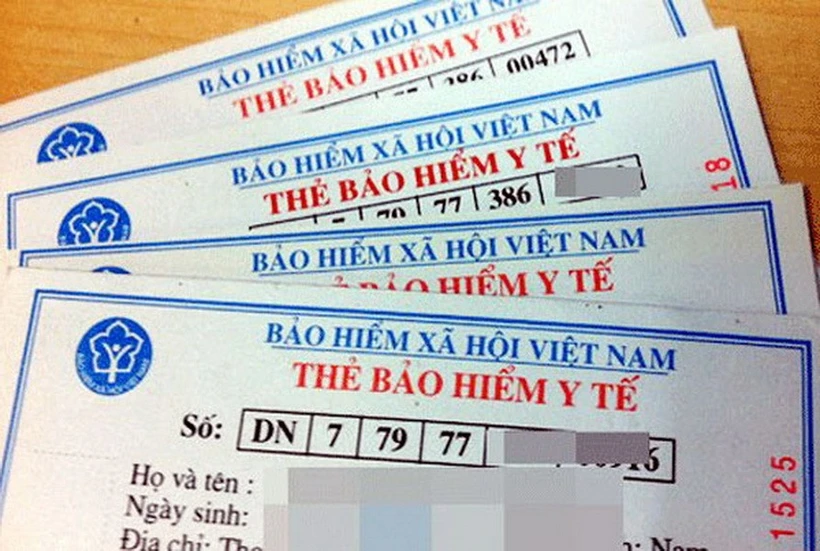
![[Photo] General Secretary To Lam receives Chief of the Central Office of the Lao People's Revolutionary Party](https://vphoto.vietnam.vn/thumb/1200x675/vietnam/resource/IMAGE/2025/5/30/140435f4b39d4599a3d17975dfb444c5)

![[Photo] A delegation of 100 journalists from the Vietnam Journalists Association visits the soldiers and people of Truong Sa island district.](https://vphoto.vietnam.vn/thumb/1200x675/vietnam/resource/IMAGE/2025/5/30/0984a986227d4e988177f560d2e1563e)
![[Photo] Journalists moved to tears at the Memorial Service for the soldiers who died in Gac Ma](https://vphoto.vietnam.vn/thumb/1200x675/vietnam/resource/IMAGE/2025/5/30/9454613a55c54c16bf8c0efa51883456)

![[Photo] National Conference "100 years of Vietnamese Revolutionary Press accompanying the glorious cause of the Party and the nation"](https://vphoto.vietnam.vn/thumb/1200x675/vietnam/resource/IMAGE/2025/5/30/1cf6cd5c8a934ebfa347028dcb08358c)
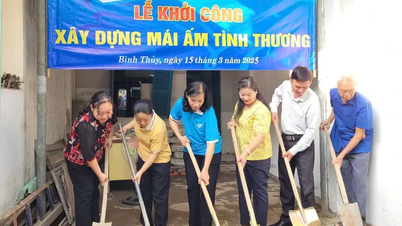



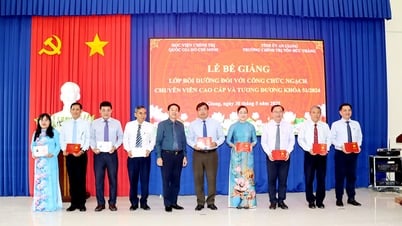








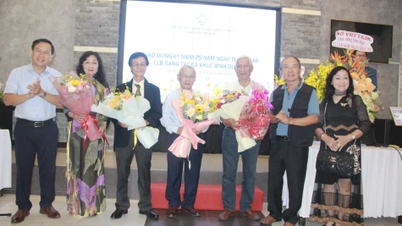
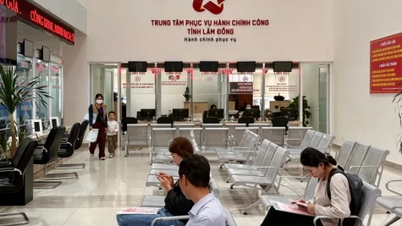
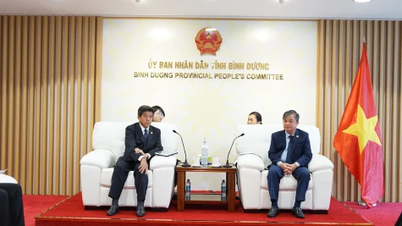


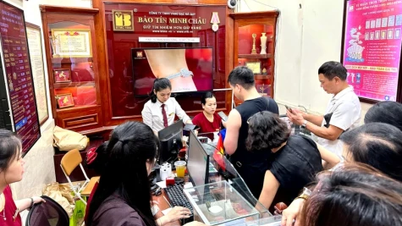























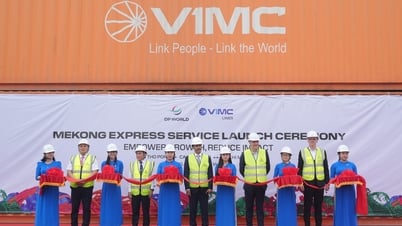















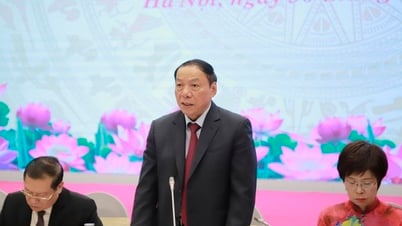


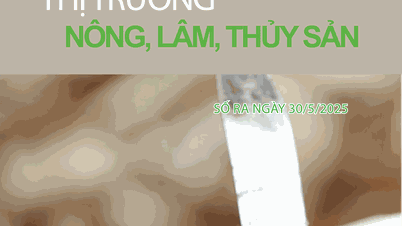














Comment (0)